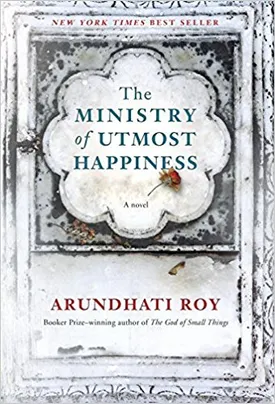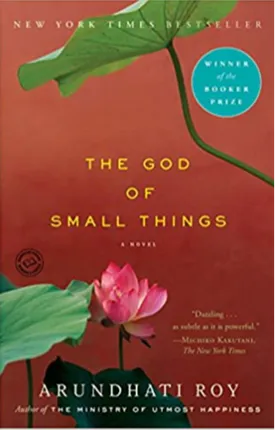Arundhati Roy
Arundhati Roy stands tall among the most internationally acclaimed authors of India. A Booker-Prize winning novelist, her work is thought-provoking and engaging, with a unique style of storytelling that marks her apart from any other author. Born in Shillong, Meghalaya, India in 1961, she has emerged as a successful author and an engaged social and political critic, who speaks out fearlessly to address the most relevant and sensitive issues of politics and society in India.
Roy graduated from the School of Architecture in New Delhi in 1984. After working as a draftsman in an architectural firm and as a designer in electric motor vehicle manufacturing, she debuted as a novelist in 1997 with the book The God of Small Things. This novel, set in Kerala, marked her as a mature and accomplished writer, for which she was honored with the coveted Booker Prize. With the success of The God of Small Things, Roy became a renowned international literary figure. Her works in subsequent years include the non-fiction book The Algebra of Infinite Justice (2002), the novel The Ministry of Utmost Happiness (2017) and numerous essays and short stories.
Going beyond her celebrated books and other works, Roy has come to occupy a distinct space within India’s political and social stratosphere. She has formed affiliations with numerous social movements, including the Narmada Bachao Andolan and the anti-nuclear movement. In 2016, Roy met with civil rights activists who are protesting the construction of a hydroelectric powerment and criticized the Indian government over its human rights policies. Roy has also spoken up in support of a number of humanitarian issues, such as the right to Information Act, the right to life and demand for justice in the Gujarat riots in 2002.
At the same time, Roy has criticized the social stigma surrounding poverty and economic classes in India. As a strong believer in equality and anti-caste system ideology, she has actively promoted the struggle against all forms of injustice, inequality and oppression. She also formed a human rights movement united national platform, called The People's Union for Civil Liberties, to protest the wrongful incarcerations of student, workers activists and prisoners of conscience throughout India.
Roy's works over the years have explored and criticized social injustice, religious politics and economic inequality in India, often through her unique style of magical realism. She is an engaged political commenter and participates in debates and rallies to highlight the issues and instances of human rights abuses in the country. An activist and a community organizer, her work has been an inspiration to many.
Today, Arundhati Roy continues to be an unswerving critic, a truthful documentary filmmaker and a creative writer whose inspiration has shaken many. Her novel The God of Small Things remains one of the best books ever written by an Indian. In her subsequent works and works, Roy has captured the human condition and its struggles in India, making her one of the most influential figures in Indian fiction.


